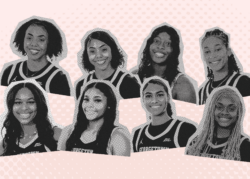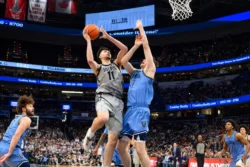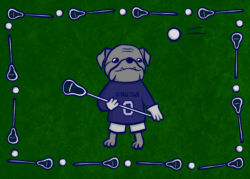On a recent trip home I went to America’s largest running specialty store, RunTex in Austin, Tx. As a marathoner, I tend to log a good number of miles per week, which has recently caused a minor case of planter’s fascitis, which gradually causes a foot’s arch to collapse around weakened tendons, in my right foot. While my addiction to running has made me continue my routes through some moderate pain, my mother wasn’t nearly as enthused about ignoring discomfort, and made me go get a pair of arch supports and a new pair of kicks to fix the fascitis.
When looking for a pair of shoes, a friendly employee offered advice. I didn’t recognize him, but from his accent and cheetah-like build I could tell he was a distance runner. I took his advice, and his friendly chatter, and purchased a pair he recommended.
What I learned that night when reading through a synopsis of the Capital 10,000 six-mile race from the week before was that the modest employee who had helped me that morning was nothing short of a 10K superstar. Jean-Marie Ndikumana won the Cap-10 in an astonishing 31:55, holding 5:09 miles throughout the race. Yet no one, including an avid runner, racer and sports fanatic like myself, had ever heard of him before the race. Unfortunately, almost no one has after the race either.
Ndikumana is dedicated to his sport as devoutly as any professional athlete. He trains for hours every morning and evening, and pulls down mid-day shifts at RunTex to make ends meet. While major leaguers deposit checks for millions of dollars a year, Ndikumana takes buses, vans, and, occasionally, planes to races across the country to compete for prize money that is likely less than a game’s wage for many professional superstars.
It’s not fair, and it really needs to be changed. Equity in sports has long been on the wane, but the fact that an athlete as talented as Ndikumana can barely make ends meet while others get six and seven figures for minor league shots must stop.
The reality of the situation is that both sides are way out of wack: prize money for runners, even in the largest races like the Boston and Chicago Marathon, are too low for the accomplishment they signify. The same can be said for Olympic medalists and women athletes in general, who are paid a paltry stipend compared to the gobs of moolah that their male counterparts rake in.
Unfortunately, I don’t know how to fix it. When teams like the New York Yankees can buy whichever players they want, at any price, and still make a profit, it’s hard to see sports income parity going away any time soon. Diana Taurasi of the recent women’s NCAA basketball champion UConn Huskies may be the best women’s player ever, and may be better than a host of male college players (she is certainly more fundamentally sound, and may be more creative). Still, she’ll likely recieve less than one fifth of the salary offered to a late second-round NBA draft pick. This year’s crop of Georgetown investment bankers will certainly outpace her earnings, but you’d be hard-pressed to find one that would bet he’ll make more than an NBA draft pick.
There may be no way to fix inequity in sports income, but at least we can recognize the problem. One day either the market will correct itself or some higher authority will step in to regulate a system that has grrown incredibly unmanageable. Until then, we should keep an eye out for the silent sports heroes who fall under the radar. Sometimes they’re more impressive, and usually a lot more modest and deserving, than the idols on our walls.





